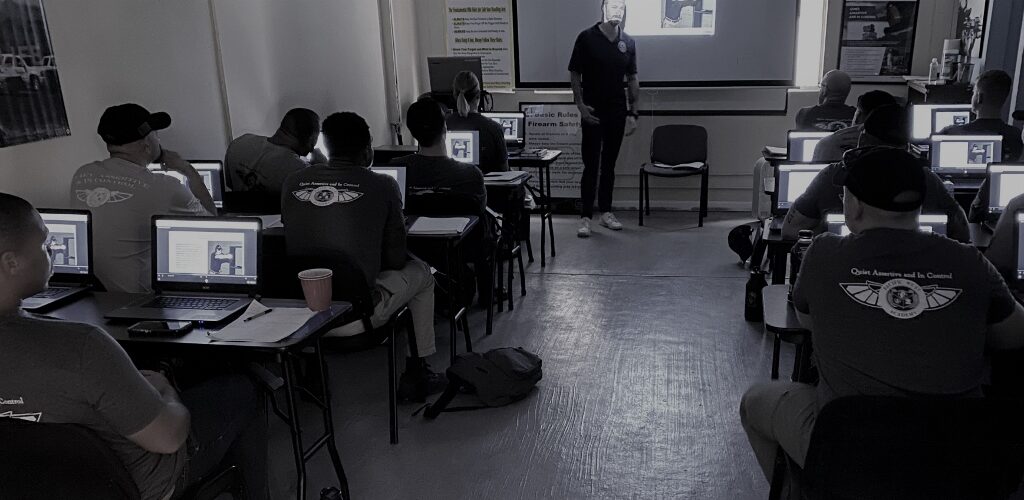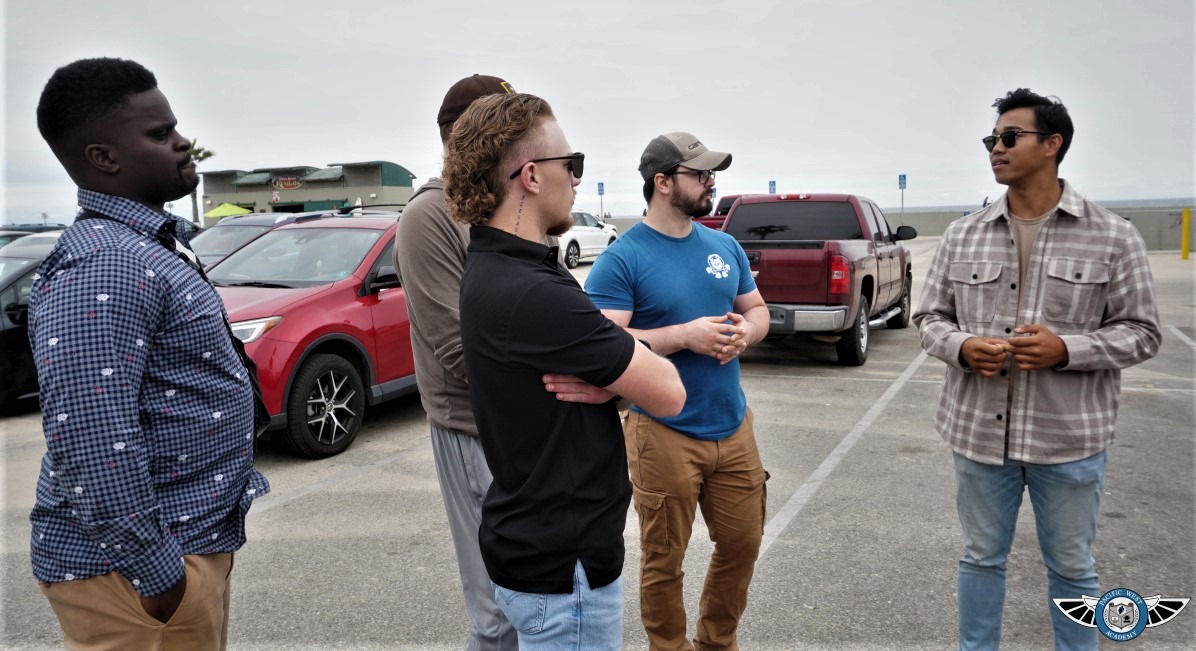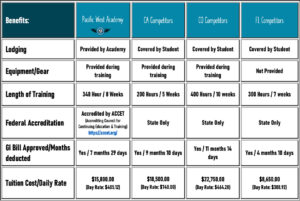

How long does it take to become a bodyguard?
How long does it take to become a bodyguard?
Becoming a bodyguard can be a challenging but rewarding career choice. It requires a combination of physical fitness, specialized training, and strong interpersonal skills — not to mention multiple certifications. The journey to becoming an excellent bodyguard or executive-protection agent lies on one’s dedication and discipline to the role. It’s a career that requires constant learning and attention to be the best.
What’s the role? What does a bodyguard do?
Also known as executive-protection agents or close-protection officers, bodyguards are responsible for ensuring the safety and security of their clients, often high-profile individuals; celebrities or corporate executives, for example. Bodyguards must be proactive. They foresee and are prepared to mitigate potential threats and respond to emergency situations quickly and efficiently.
What Exactly Does a Close Protection Position Involve?
Close protection, executive protection, bodyguarding—it’s all part of the same specialized field that’s all about keeping people at high risk safe from potential harm or attacks. Most of us have seen it in movies and think we know what being a bodyguard is like. However, close protection goes far beyond the stereotypical image; it includes a wider range of responsibilities, such as threat assessment, risk mitigation, and proactive security planning.
Here’s a more detailed explanation:
Purpose: The overall purpose of close protection is to guard the safety and well-being of an “principal” (the protected person) and the people immediately around them from potential harm.
Responsibilities: Close protection officers (CPOs) enjoy a very wide range of responsibilities, which include:
- Threat Assessment and Risk Mitigation: Identifying potential threats, assessing vulnerabilities, and implementing security measures to mitigate risks.
- Security Planning: Developing and implementing security plans for the client’s travel, activities, and residence, including secure routes, safe locations, and backup plans.
- Surveillance and Monitoring: Maintaining constant situational awareness, observing surrounding areas for out-of-the-ordinary activity, and surveillance for potential threats in real-time.
Physical Protection: Providing real-time physical protection for the principal, such as acting as a bodyguard, personal escort, and eliminating threats if necessary. - Emergency Response: Acting timely and effectively in response to emergencies, including medical emergencies, assaults, and other incidents.
Training and Skills
Close protection officers undergo extensive training in all sorts of subject matter, including:
Risk Assessment and Management: Identification, examination, and management of potential threats.
Security Techniques: Implementation of a variety of security measures, including protection of motor vehicles, crowd management, and emergency response protocols.
Self-Defense: Learning self-defense techniques, including de-escalation and close-quarter combat.
First Aid: Providing first aid in case of injury or illness.
Communication and Interpersonal Skills: Building rapport with the client and communicating well with the rest of the team.
Who Needs It?
Close protection is usually required by individuals who are in danger due to their profession, public profile, or wealth. Some of them are:
- High-profile individuals: Celebrities, politicians, royalty, and other celebrities.
- Business leaders: CEOs, executives, and other high-ranking business leaders.
- Diplomats and foreign officials: Individuals who may be targeted due to their diplomatic status.
- Journalists and human rights activists: Individuals who may be threatened by those whom they investigate.
Becoming qualified to be a bodyguard
Becoming a bodyguard demands a certain set of personal qualifications, including physical fitness, mental resilience, and situational awareness. Individuals with backgrounds in professional athletics, law enforcement or the military can be beneficial, but are not prerequisites.
Aspiring bodyguards should possess excellent communication skills — the ability to navigate communications explicitly and discreetly can be vital to a detail. These agents are planners and strategists first. In turn, bodyguards/EP agents can remain calm under pressure and perform effectively with their teams using short verbal commands and nonverbal movements and cues.
Getting the education and experience
The educational requirements to become a bodyguard can vary depending on the employer or the jurisdiction in which you plan to work. Each state has different requirements — some more elevated than others. Most employers will require a high-school diploma or equivalent. As far as higher ed, candidates with a degree in criminal justice, security management, or a related field can potentially kick off their executive-protection careers at a greater role starting out.
Gaining practical experience in a relevant field, such as law enforcement, military, or private security, can significantly enhance your prospects of becoming a bodyguard. This experience helps build essential skills and a foundation for more advanced training.
Security trade schools are often used in conjunction with the experiences mentioned above to enhance an individual’s opportunities in the EP world, including clientele and pay. Generally speaking, these training programs can take 5-10 weeks depending on class schedules and intensity. At Pacific West Academy, our students immerse themselves in a 39-day training program. Veterans and civilians who enroll spend each day together learning and training.
Comparing training programs
Like Pacific West Academy’s CESS Program, executive-protection and bodyguard training programs are designed to provide candidates with the necessary knowledge and skills to perform the job effectively. Training typically covers areas such as threat assessment, defensive driving, firearms handling, first aid, and close-quarters combat techniques. PWA’s training program has students learning and training with experienced instructors while other academy staff assist in helping students secure state certifications and job interviews.
Training programs can vary in length and intensity, ranging from a few days to several weeks. Some specialized training academies offer comprehensive courses that last several months, providing in-depth instruction on various aspects of close protection. As far as credibility, PWA is the only accredited security/EP school recognized by the Department of Education. Here’s how Pacific West stacks up against other competitors:

Curriculum, licensing, and certifications
Each state will have nuances in their requirements to become a bodyguard. Typical certifications include security guard licenses, medical training certs, and firearm handling certs. Security trade schools or training programs set students up for success by organizing classes and assisting with paperwork to get prospective security and bodyguard professionals in the field and earning as soon as possible.
To even begin training for these certifications, individuals have to meet age requirements and pass background checks. Pacific West Academy has its own vetting process for students, including multiple interviews.
Using training programs to build a network
Networking is a crucial step in establishing a successful career as a bodyguard. Particularly for those coming from a military background, networking can be crucial to establishing yourself as a professional in the security industry.
Trade schools like PWA not only offer quality and certified training, but also give students assistance in resume building and direct contact with recruiters and job opportunities. Attending trade school programs can expose students to industry events, workshops, and conferences where aspiring professionals can meet others in their field and gain insights into the security and bodyguard industry.
Continued learning and training as a bodyguard
The learning process for a bodyguard doesn’t end with initial training and experience. To stay competitive in the industry and expand career opportunities, it’s essential to pursue continuous education and consider specialization in specific areas of close protection. Specializations could include executive protection, celebrity protection, or working in high-risk environments.
The best bodyguards and EP agents hold a variety of experience — anywhere from residential security teams to international travel and events with public figures. With intention, continued learning, and professionalism in the trade, a security professional’s network and job prospects will grow naturally. Many bodyguards end up in supervisory or management positions for in-house corporations or security companies. Others even start their own businesses. Pacific West Academy has many successful grads. To hear what the program is like and how your security career can grow, take a look at our success stories.
Becoming a bodyguard requires dedication, preparation, and ongoing commitment to elevating one’s learning and training opportunities. Pursuing a trade school can be a quick way to train, learn, and earn certifications required to take on serious roles in the security and executive-protection fields. These training programs can take 5-10 weeks depending on the class schedule and level of immersion.
At Pacific West Academy, our 39-day CESS program trains up veterans and civilians for roles in the security industry. If you’re interested in becoming a bodyguard or elevating your career as an EP agent or security professional, consider joining the only security program recognized by the Department of Education. PWA’s placement rate is 4% above the national average for trade schools, meaning our grads are getting jobs shortly after graduation — if not before!
